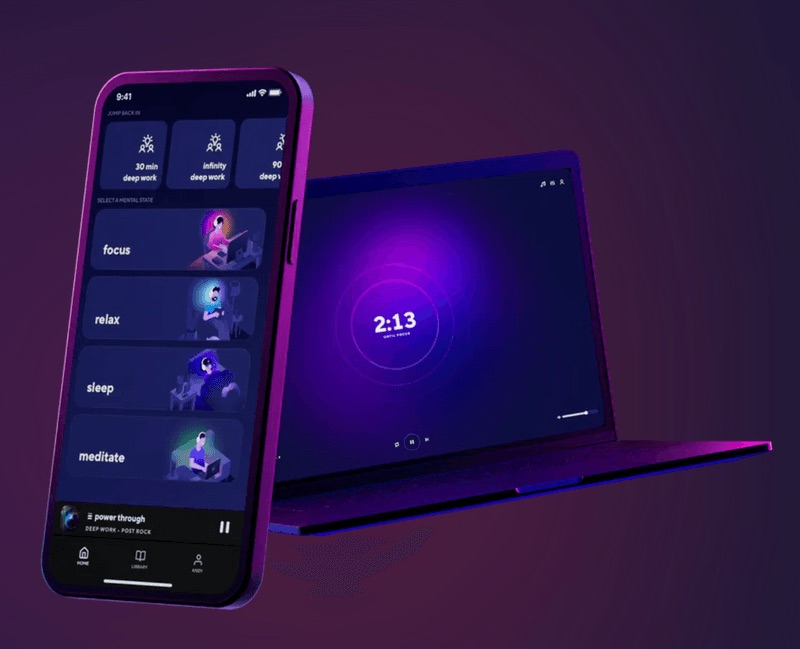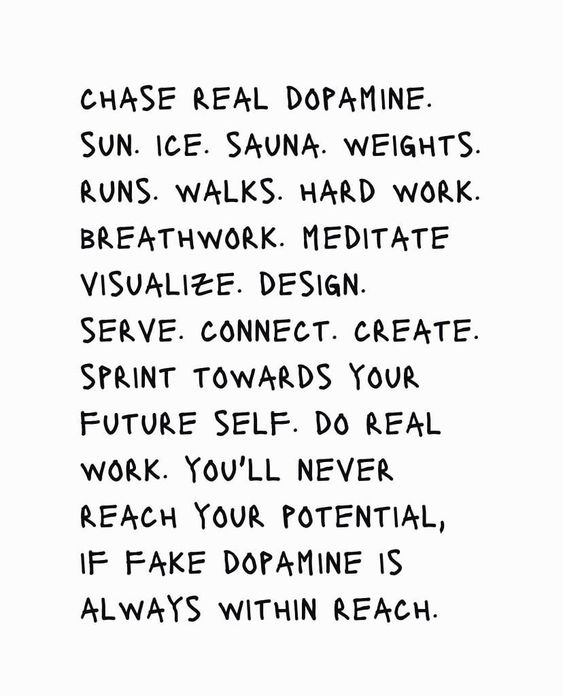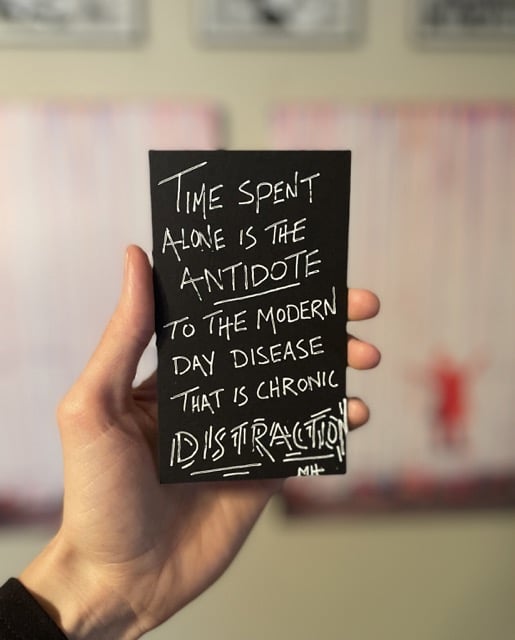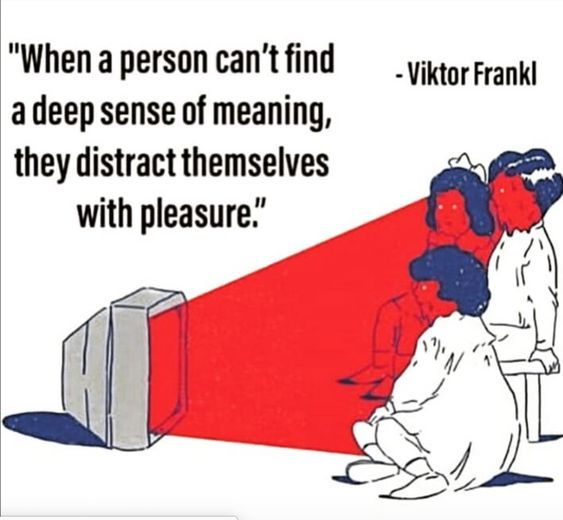“Precisely when we think we’ve earned the right to relax our discipline is exactly when we need it most. The payoff for all our efforts? So much more temptation. So many more distractions. So many more opportunities. The only solution? Even more self-mastery! Achieving things is great. Becoming a selfish jerk because you accomplished them? Thinking you’re suddenly better or matter more than anyone else? C’mon.”
Ryan Holiday, Discipline Is Destiny (Page 292)
“A weak mind must be constantly entertained and stimulated. A strong mind can occupy itself and, more importantly, be still and vigilant in moments that demand it.”
Ryan Holiday, Discipline Is Destiny (Page 104)
Brain.fm: Functional Music
Why We ♥ It: I (hey! It’s Matt…) have a hard time focusing when people are talking around me or there is lyrical music playing in the background—Brain.fm solved this for me. Designed from the bottom up to affect your brain and optimize your performance, brain.fm is a subscription service that I use more than any other (not even Netflix comes close). It’ll help you focus, relax, sleep, and meditate—and it’s all backed by science.
“A lot of what disturbs us from our tranquility is not literal noise. It’s not the pinging of our phone. It’s when we pull up our phone and see what other people are doing, when we have that FOMO or jealousy or we feel inadequate that we’re not accomplishing or achieving the way they are. Because what we’re forgetting is the path that we’re on, we forget what we’re trying to do, we forget what’s important to us.”
Ryan Holiday
“It goes without saying, I have turned off all external sources of distraction. No phone. No e-mail. No Instagram. No Facebook. I am on an ice floe in Antarctica. I’m circling alone at seventy thousand feet. I’m on the moon. Barring a nuclear attack or a family emergency, I will not turn my attention to anything that’s not happening inside my own demented brain.”
Steven Pressfield, Put Your Ass Where Your Heart Wants To Be (Page 76)
“Human beings have always employed an enormous variety of clever devices for running away from themselves, and the modern world is particularly rich in such stratagems. We can keep ourselves so busy, fill our lives with so many diversions, stuff our heads with so much knowledge, involve ourselves with so many people and cover so much ground that we never have time to probe the fearful and wonderful world within. More often than not we don’t want to know ourselves, don’t want to depend on ourselves, don’t want to know ourselves, don’t want to depend on ourselves, don’t want to live with ourselves. By middle life most of us are accomplished fugitives from ourselves.”
John W. Gardner, Self-Renewal (Page 13)
“While much has been said and written about how hyperconnected we now are and how distracting this information overload can be, the larger issue is how our connectedness has increased the strength of social pressure. Today, technology has lowered the barrier for others to share their opinion about what we should be focusing on. It is not just information overload; it is opinion overload.”
Greg McKeown, Essentialism (Page 15)
“The moment we find ourselves feeling bored, sad, anxious or complacent we reach for our phones, a prescription or a self-help book. We’ve become terrified of feeling anything negative. I’m not going to point a finger, but if someone held a gun to my head and told me to point a finger, I’d point to Instagram and Twitter and Facebook. I’d say we were due. I’d say that when you have an entire society overly focused on sharing the upper 1% of their days in a virtual world 24/7, we were bound to create some deep-rooted fears and insecurities around negative emotions. Now, we are forced to reap what we have sown.”
Cole Schafer (January Black), One Minute, Please? (Page 64)
“Top performers get back on track faster than most. This is the skill to develop. You will be interrupted, but you can choose to keep it brief.”
James Clear, Blog
“Shut out all forms of distraction. Eliminate all opportunities for rivalry.”
Bruce Lee, Striking Thoughts (Page 103)
“Anyone with a smartphone is familiar with the feeling of having somehow, as if by accident, lost a precious hour to their device. But thinking ill of that behavior only induces guilt and makes the problem worse. It creates a moral hierarchy that some actions are good, and some are bad. We have to realize that anything we want to do with our time is fine as long as we do it on our schedule.”
Nir Eyal
“The distractions of the digital age hack the vulnerabilities of our psychology. They give us little microbursts of dopamine that feel good in the moment, but amount to very little in the grand scheme of things.”
Mark Manson, Blog
“I’ve never believed that one should wait until one is inspired because I think that the pleasures of not writing are so great that if you ever start indulging them you will never write again.”
John Updike, via Daily Rituals (Page 195) | Read Matt’s Blog on this quote ➜
“If it entertains you now but will bore you someday, it’s a distraction. Keep looking.”
Naval Ravikant, Medium
Tony Robbins Quote on Focus and How Questions Are One Of The Most Powerful Tools To Utilize
“The most powerful way to control your focus is through the use of questions.”
Tony Robbins
Beyond the Quote (225/365)
Distracted? It’s because you’re asking yourself the wrong questions: Am I missing out on any new posts on the socials? I wonder what he/she is doing right now? I wonder how much it would cost to buy a new kayak? How come I always get so distracted? Why is life always so unfair to me? What am I going to eat for dinner? How can I get rich, quick? What shortcut can I take for better health? Why is my dog so cute? You get the idea.
Read More »Tony Robbins Quote on Focus and How Questions Are One Of The Most Powerful Tools To UtilizePenor Rinpoche Quote on Dealing With Life Now Rather Than Waiting (and Worrying) About It Later
“Life is more difficult if you worry. It’s better to deal with things as they come up.”
Penor Rinpoche, via Turning the Mind Into An Ally (Page 101)
Beyond the Quote (134/365)
I have noticed in myself over the past few days an increased tendency to use my phone. This tendency, I suppose, could be for many reasons. It could be because of the addictive nature of phones, the increased desire for connection during a time of isolation, it could be a coping strategy to deal with the effects of the Coronavirus pandemic, a lackadaisical response to the slower lifestyle (in my case at least), or a combination of all of the above. While it is important to be a little more lenient on yourself during a time of global crisis, what I have also noticed, from careful introspection, is that I have felt my anxiety levels go up in proportion to the increased phone use.
Read More »Penor Rinpoche Quote on Dealing With Life Now Rather Than Waiting (and Worrying) About It Later


